Kerbala Tragedy, Imam Hossain
Imam Hossain
As for the saints and the martyrs in the hagiographies of the Christian Middle Age, the life of the Shiite Imams is filling the Persian popular conscience. Still nowadays, the Kerbala tragedy is commemorated in sermons, theatrical shows and by the paintings of the naïve artists. This story can be thus summed up:
When the founder of Islam, Mohammad, died in 632, the Moslem community divided itself on the election of a successor. Ali, son-in-law of the prophet, and Abou Bakr were candidates for the Caliphate. Abou Bakr won and upon his death, his descendants Omar and Osman took over the power. It is only in 656 that Ali became Caliph. However, his assassination occurred at Koufe (Irakian town south of Baghdad) in 660. Now Iranians, although Islamised, refuse the hereditary transmission of power, so to their eyes Ali wan the sole successor of Mohammad, the three others being usurpation. Therefore, the entire Ali’s family is still today revered by the Iranians and particularly his son Hossain.
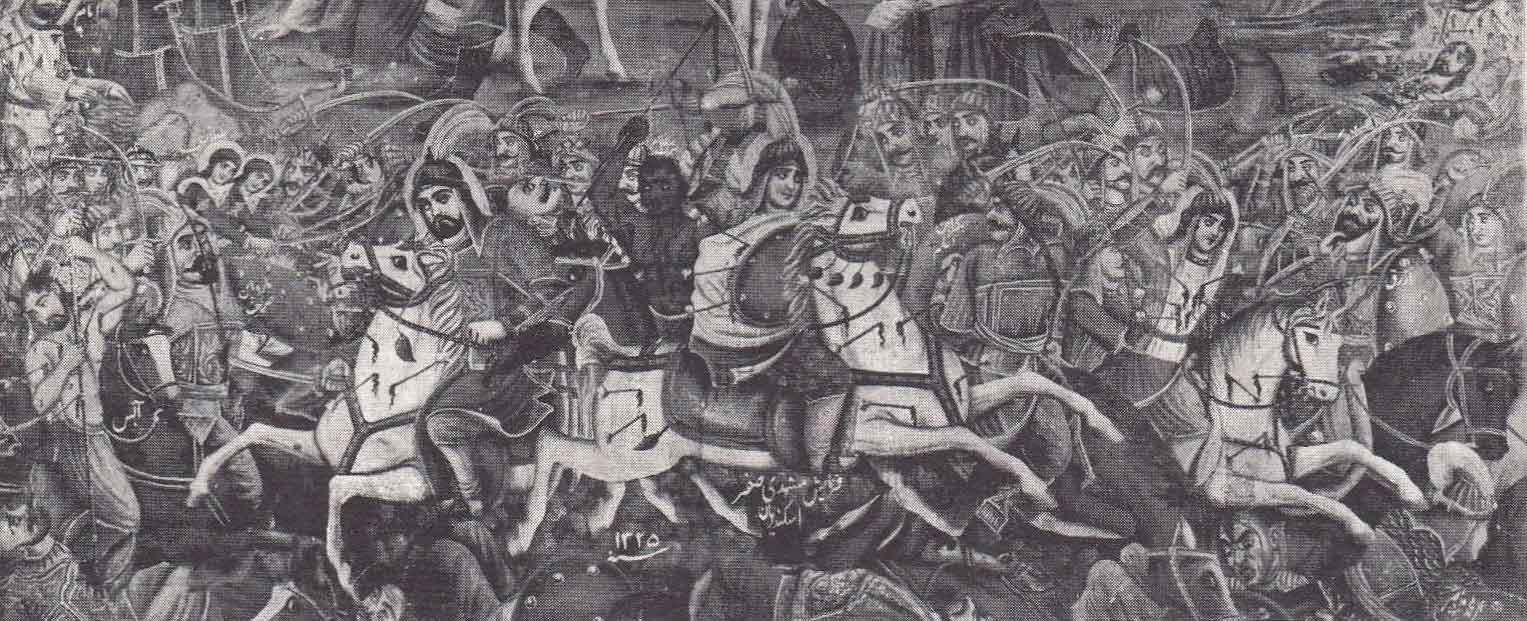
After Ali, his son, Hassan, became Caliph. Hassan died in 970 AD, and his brother, Hossain, succeeded. In 680 AD, Hossain leaving Medina with his 72 members of family and friends, to meet at Koufe the partisans that Ali had left in this town. He reached, not without many difficulties, Kerbala at the heart of Irak, in a dried up plain. Finally, his caravan surrounded by the troops of Yazid, the caliph of Damascus, succumbed in a few days, consumed with thirst.
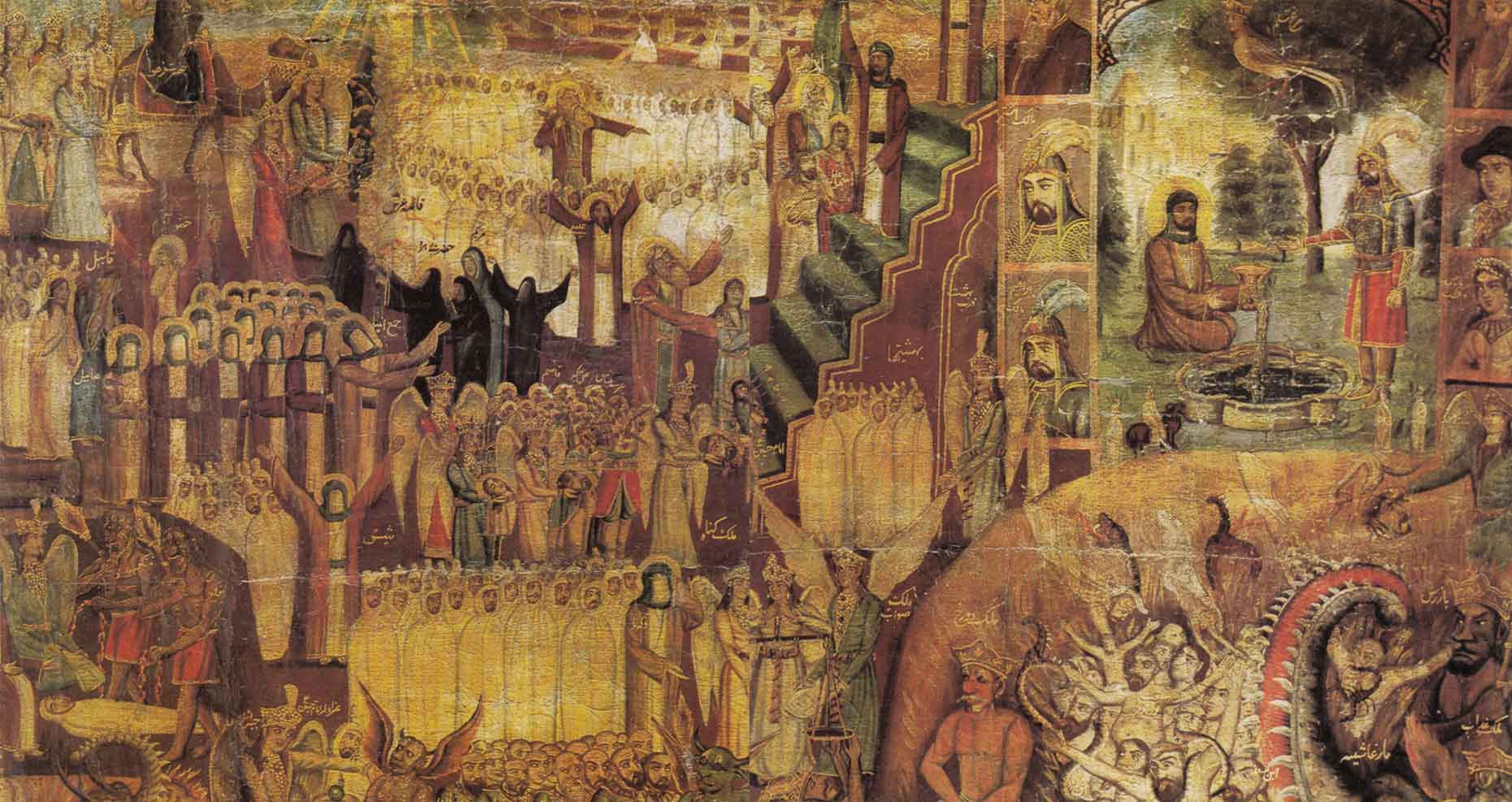
Kerbala Tragedy and Persian Writers
The tragedy of Kerbala undoubtedly inspired numerous Persian writers. From one of them, the prose writer Hossain Vaez Kachefi, the extraordinary account of Hossain’s death gives all its tragic dimension to the battle:
“When Hossain fell on the land of Kerbala, the ground began to quiver, and a clamor fell from the skies. Ten men from the enemy army dismounted, drew their swords and started forward. Each one tried to outdistance the other to cut Hossain’s head and receive as a reward a gift and a parade dress. However, each time that one of them approached, Hossain opened his eyes and looked at him, and the man was falling back full of shame.
At last two damned scoundrels – Sinan ben Anas and Shemr son of the cuirassier – went forward. Sinan wanted to reach there first, but he was overtaken by Shemr who squatted down on Hossain’s chest. Opening his eyes, he said to Shemr: “Who are you?” The damned named himself. “Draw from your face your veil of mail,” said Hossain. As soon as he had uncovered his face, Hossain saw that his teeth, such as those from the swine, were protruding from his mouth.
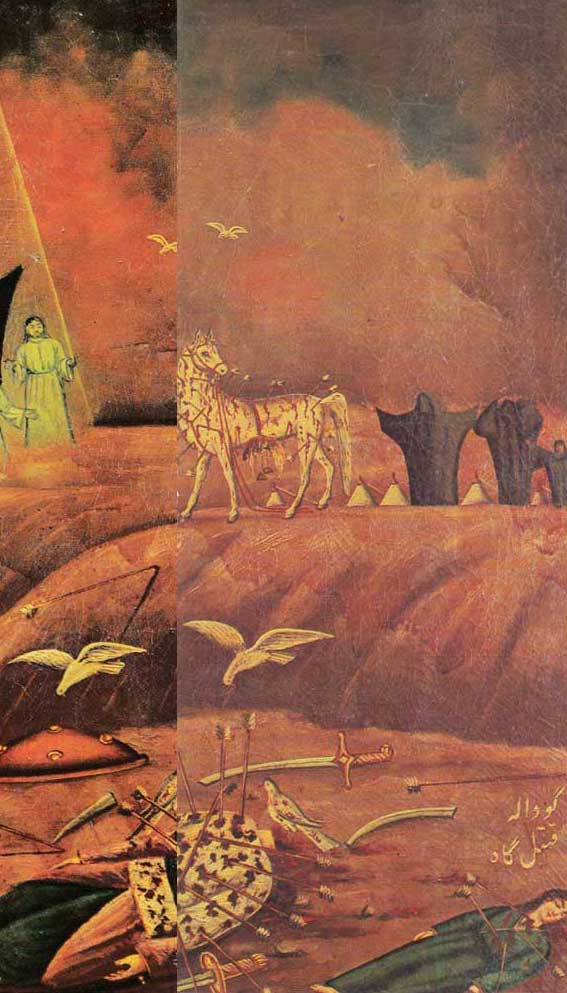
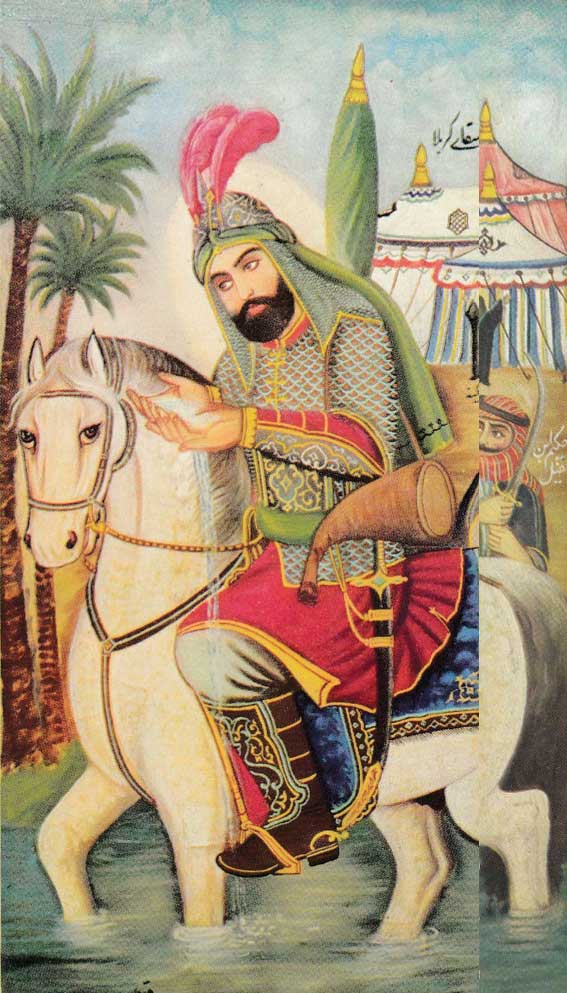
“Indeed this is a true sign,” said he. Then he ordered him to uncover his chest; doing so Hossain saw there the marks of leprosy “this is indeed the other sign, my ancestor the prophet spoke the truth” he said. He added “last night I saw in a dream Allah’s Prophet; he announced to me that the next day, at the hour of the first prayer, I shall rejoin him and that my murderer would have the aspect that you have: the signs that he showed to me are yours. Do what you will, Shemr! Do you know which day it is today? – I do, it is Friday, day of Achoura. – Do you know what hour this is? – Yes indeed! It is the moment to intone the sermon and to pray in assembly.
– At this hour the preachers of the community founded by my ancestor Mohammad are intoning the sermon from the pulpit and lauding this august ancestor; this is how you act towards me! Shemr! You are kneeling on my chest, where the Prophet laid his face; you will strike with your sword this throat that he kissed. Shemr! Arise! Free my chest – for it is time to pray – so that I may turn towards Mecca and pray, without even having been able to accomplish the ritual ablution. I have inherited from my father Ali to be struck fatally during prayer. Therefore, while I am praying; do what you will!”
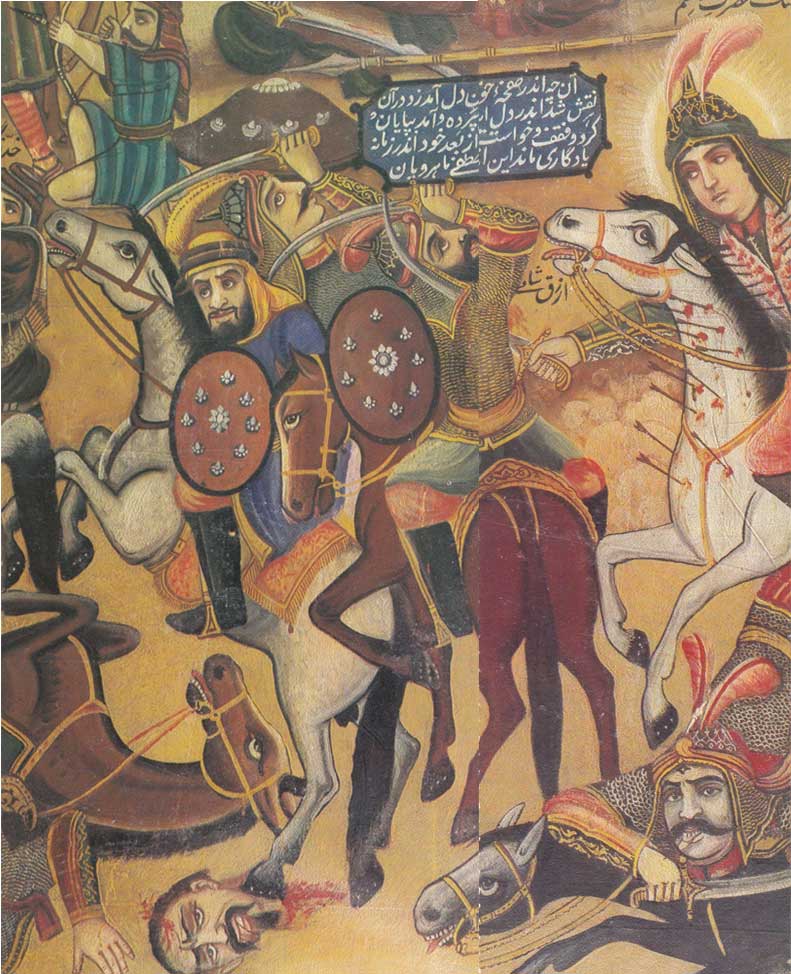
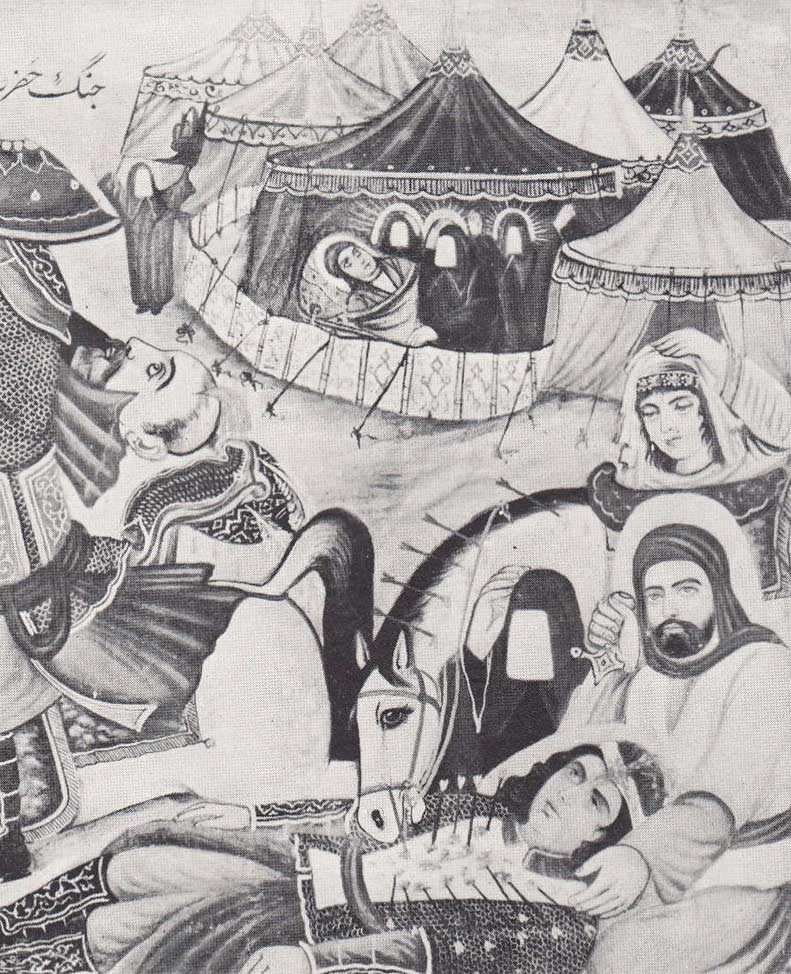
Shemr arose and exposed the chest of the Imam who still had the strength to turn towards Mecca and begin to pray. However, Shemr, not having the patience to await the end of the prayer, made his Highness, seen by God, partake of the martyr’s drink. “Surely we belong to God and return to him!” At that very moment, a storm burst in the holy places of the invisible universe; the poor sinners uttered a cry to the world of the Almighty. The sun that illuminates the world lost its splendor; the moon which adorns the universe fell into the pit of total obscurity. The angels’ waiting filled all space; the djins around Kerbala burst into sobs; the robe of the sky became stained with blood; the seas lifted their waves of sadness to the zenith; the mounts expressed their grief with pained and heart-rending sounds.
Muharram in the Mirror of Traditional Paintings
This episode of a strong tragical force, forms the subject of an important number of naïve paintings, as the story-tellers did find there an easy theme for dramatical development and meditations. So one can see, a multiplication of imagery, sometimes closely sometimes very loosely related to it, and in this case mainly due to the imagination of the painters and the tellers.
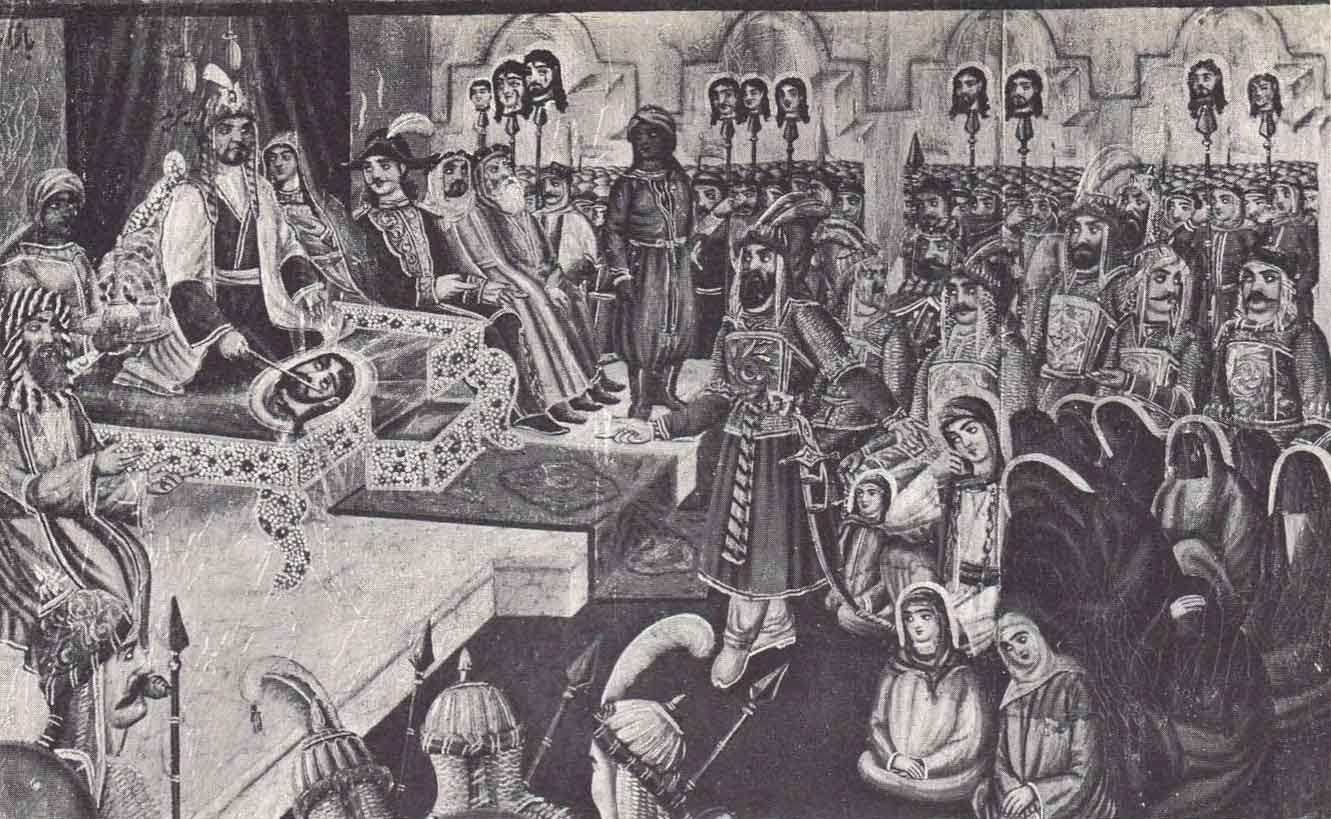
The martyr of Hossain’s newly born son, Ali Asghar, to whom the Angel Gabriel in dervish disguise brought water.
Furthermore, the martyr of Abbas, Hossain’s brother, who goes to fetch water from the Euphrates to quench the thirst of his family, had his hands cut off. Shemr, Hossain’s murderer, claiming the Caliphate to Yazid. The repentance of the Caliph of Damascus when hearing Saint Zeinab’s words.
Moreover, lastly the terrible revenge of Emir Mokhtar over Hossain’s torturers, subject rich in imaginations of rare cruelty (Mirdashti Publication).

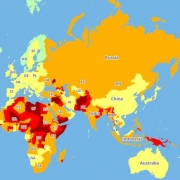
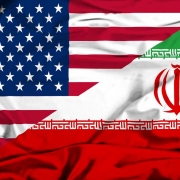
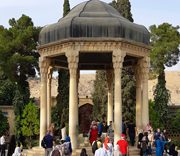

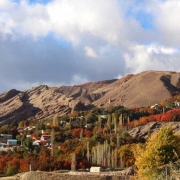
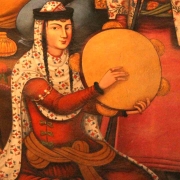



Leave a Reply
Want to join the discussion?Feel free to contribute!